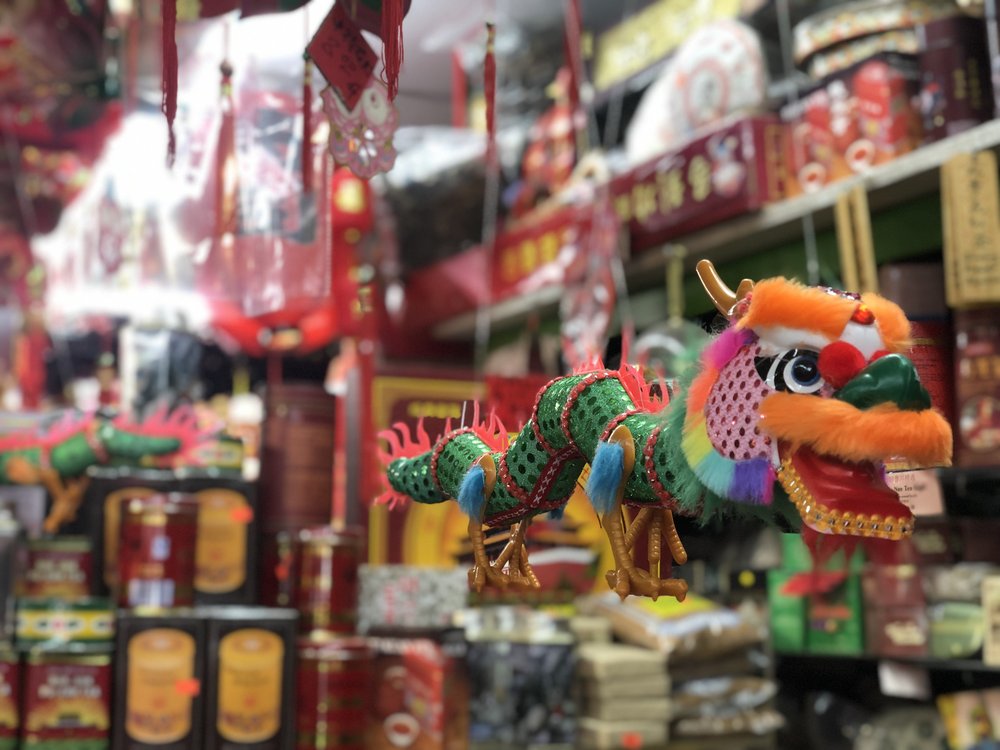Chinatown business owners worry Trump's tariffs will be calamitous
April 14, 2025, 5:11 p.m.
The expected economic hit follows other recent blows, from the pandemic shutdown to anti-Asian attacks.

Karen Liu, whose family-run business has operated for nearly 20 years in Manhattan Chinatown, said she worries that the steep tariffs imposed by the Trump administration on goods from China will be catastrophic.
“Almost every business in Chinatown is an import business in some way. These tariffs threaten our ability to restock, and for many of our neighboring business owners, their ability to stay open,” said Liu, who helps operate Grand Tea and Imports at 298 Grand St., in Lower Manhattan, with her parents and her sister.
Liu spoke at a press conference on Monday outside Nom Wah Tea Parlor, the oldest continuously run restaurant in Manhattan Chinatown, according to community leaders. She said it’s too soon to say how the imposition of 145% tariffs by the Trump administration would impact her company, but said the business was heavily reliant on Chinese goods, from food items to decorations. “ It affects all dimensions of our life here,” Liu said.
She and other business owners said the economic harm could decimate businesses that have already weathered the pandemic and other crises in recent years. Trump administration officials have argued in recent days that the tariffs, which escalated as the U.S. and China engaged in a trade war, will help restore jobs to U.S.-based companies.
Rep. Dan Goldman, a Democrat who represents Manhattan Chinatown as well as Sunset Park, Brooklyn, said Asian-owned small businesses would be disproportionately hit by the tariffs.
”Some large businesses pass through that tax to the consumers,” Goldman said. “These small businesses cannot do that, because they operate on such razor thin margins. They are going to bear the brunt of that tax and that's why they will go out of business.”
According to the Washington D.C.-based Asian American Foundation, Asian American and Pacific Islander-owned businesses “account for a significant portion of the City’s economy, generating nearly $72 billion in annual revenue and employing over 327,000 people in 2022.”
Wellington Chen, the executive director of the Chinatown Partnership, said the tariff was just the latest in a series of setbacks for the city’s Asian community, including the Covid pandemic, a spate of “anti-Asian hate” attacks that followed, and, earlier, the World Trade Center attacks in 2001.
“The community has gone through so much,” Chen said. “The last thing we need is another bloodbath here.”
Speaking on "Face the Nation" on Sunday, U.S. Trade Representative Ambassador Jamieson Greer defended U.S. tariffs.
“President Trump has a global program to try to reshore American manufacturing and address the trade deficit,” Greer said. “It’s a global issue.”
Some Democrats said they were pushing Republican members of Congress to undo the tariffs.
Rep. Grace Meng, a Democrat from Queens, said some Republicans “are sympathetic behind the scenes and behind closed doors, but we need them to say it publicly.”
Grace Lee, an Assembly member who represents Lower Manhattan, said the impact of tariffs had to also be conveyed to Asian American voters in New York, including those who sided with Republican candidates in recent election cycles.
“They need to understand that Republican values, that Republican policies do not include Asian American prosperity,” Lee said.
Tourists are staying away from the US. What does that mean for NYC? Trump tariffs would hit New Yorkers’ energy costs first, Canadian diplomat warns